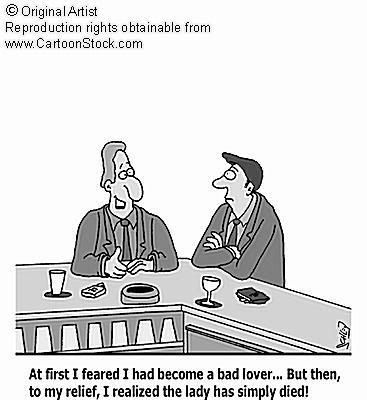
Rodin's "The Thinker."
Note: scroll below this post for a list of my empirically based God arguments.
A poster on the comment section of the CADRE blog arrogantly proclaimed:
I understand that some Christians have a mental issue accepting that some people have knowledge that the Christian god does not exist. It is a very scary thought (needing debunking) that someone claims to know what your belief is wrong. It is especially scary when it come from an atheist, not from a "misguided" muslim.
12/10/2007 03:02:00 PM
when challenged to present the argument he just said:
No, I don't have a proof that dodos are extinct, Socrates lived, Allah does not exist or that Model-T Fords are not manufactured any more, but once one investigates an issue sufficiently the usage of the word "know" is generally excepted. Many religious people seem to "know" that their particular deity exists. I don't think you call all of them naive and ignorant?
12/11/07
I had challenged him to show the proof. If you really "know" there's no God then show us how so we can stop the nonsense and get on with our lives as atheists. Of course he had no evidence nor argument either, all he had was the typical "I don't see any God so there must not be one," couched in terms above "no proof of passenger pigeons, can't prove Bigfoot or UFO so therefore, no God. In others what you don't see is what you don't get metaphysically. The strange twist is he then implies that the term "knowing" is valid when used of any sort of knowledge derived from study. This means the concept of actual certain knowledge is really just a synonym for "educated faith" which would make even more puzzling how he could hold this out as some sort of superior position for atheism. If we take that seriously it really means we have much reason to believe in God as not. Unless of course he wants to content that atheist study harder and I would gladly take that challenge. If the volume of study or matter read was really the same as proof of one's position I know my position would win hands down. Rather than speaking in terms of knowledge we are actually speaking of warrants for belief. When a person says "I know X is the case" in the sense of conviction one is saying "the confidence I place in this hypothesis is warranted." This is not absolute knowledge as to a state of affairs that might be demonstrated to the extent that all opposition must become silent. But it is a statement of the veracity of one's warrant. I will argue that Christian warrant for belief is more rational in the sense that it has more positive evidence in its favor than do atheistic warrants.
We have no empirical demonstrative proof that God exists, but we come closer to having that than atheists do to having proof of no God: Once we understand the decision making paradigm, we can see that the basis of belief in God is more rationally warranted than is disbelief. We can observe three things about the decision making paradigm:
I. We should not expect Empirical Proof of God: nor do we need it.
II, We can understand a co-determinate, or God Correlate, which is empirical.
III. The empirical nature of the co-determinate provides prima facie justification for belief, which is sufficient justification for belief.
Let us examine these three observations:
I. We should not expect empirical proof of God.
Atheists don't just want empirical proof, they want absolute proof. They want DNA evidence. They want to see God physically. They want the kind of evidence, literally, that it would take to establish a law of physics. This is an irrational demand owning to the nature of empirical proof. A think is proven empirically when it can be observed and understood within the framework of the cosmos and of our cultural context in which we make sense of the universe. We accept many things that are not empirical and take them for granted. Essentially empirical evidence is meaningless outside the context of a whole set of basic assumptions that we take for granted all the time. These pertain to our understanding of what life is, what the world is, what it means to live in the world. None of that would be possible without logic. We are co;instantly drawing logical inferences about the nature of the world and we take these for granted as givens. Something beyond our understanding, from outside that context of given assumptions, clearly is beyond empirical evidence. Examples of the given assumptions would include:
(a) I exist as a coherent stable entity in a world which is external to my own understanding and being.
(b) the world did not start with the moment of my birth but went on for some time before I existed.
(c) there are other minds external to my own which exist independently of my own perception.
There are many other assumptions, such as the future will be like the past, the sun will rise tomorrow. We can think of many more. The point is none of these things can be proven with the kind of certainty that atheist demand for God. We only take them for granted and they form the basis of our understanding of a stable coherent world that works according to rules of reason and laws of both logic and physics. We have no proof that we are not brains in vats being fed illusions by an evil genius, or even a good genius. We assume not because it doesn't help us get by in life. We find that we navigate in the world much better when we assume the reality of the world, but we can't prove it. We take it for granted.
Empirical proof is not absolute proof in an epistemological sense. This also means that epistemological problems are prior to science, they are foundational to science they are not resolved by science. Science is what we do in terms of systematic observation in lue of an answer to these problems, and it only works within the context of assumptions we have made about the world. This means empirical proof is only good for tangible things within that sphere of assumption. God is beyond that sphere. Why? Because God is the foundation of all that is. "God" is the term we use to designate the basis of reality. Thus God is beyond the sphere in which we can assume and take for granted these basic epistemic assumptions. If we think of God as a mind and ourselves as a thought in that mind, we have way of understanding God or even approaching God other than God's own willingness to let us know.
atheists want to make assumptions about what God would do, because they are hoping under sting will come easily. They are skeptical of any answer from beyond that sphere of knowledge taken for granted, the known zone of epistemic assumption. I will not delve into the reasons for skepticism as thought might take us far afield. It doesn't matter anyway, the point is atheists are loath to accept this idea that empirical evidence is not absolute because to understand it one must step outside the framework of empirical knowledge. It's a conclusion arrived at without the aid of empiricism and to arrive at is is to demonstrate the useless nature of empirical knowledge in an absolute sense. Thus the claim "I have no evidence that passenger pigeons are gone but I know they are." That's an assumption which is itself not based upon empirical proof, because I doubt seriously that this guy has interstage ever aspect of reality such that he can see there is no passenger pigeon. The very nature of statement is begging the question in a sense. It's based upon extrapolation from empirical data, it's inductive as a conclusion. It's a reasonable assumption given the context of that Known zone, but doesn't make any sense in terms of God. Obviously this kin of assumption can't work in relation to something that transcends our ordinary level of knowledge.
In thinking about the basis of reality, there is no way we can understand the foundations of being. This is completely beyond anything we experience. Thus to try and rule out an hypothesis on that level based upon its lack of empirical data is laughable and absurd. If you were a character in the Holodeck, from Star Trek TNG (or yes, the matrix as much as I hate that movie)how would you ever know it? You could not unless someone from outside the program told you about "outside the program." Or of course, unless the program as designed to give clues. Atheists assume that God would tell us but I have given reasons why he would not. He has left clues because he wants us to know, but he wants to know in a certain way, that's why he requires faith. He wants us to seek the truth and find the clues because that will be the only way to internalize the values we will learn form seeking. If he just came down to central park or the UN an held a press conference "O yes I am God, btw better obey me now." We would all probably try to obey but we would all resent it. Only if you seek and find the clues that you internalize the values an then it matters to you that there is truth which must be obeyed. you want to obey because knowing this as the pay of of truth finding is important, having sought and found.
Thus we should not expect to find empirical proof of God, nor do need such proof. We don't need it any more than we need proof that we are not brains in vats. We can get by just fine navigating the world assuming that life is real and other minds are real and that the world is real; we can also get by find assuming that God is real. In fact we get by better assuming that God is real. But I'm coming to that.
II. We can understand a co-determinate, or God Correlate, which is empirical.
Decision Making Paradigm.
Co-determinate: The co-determinate is like the Derridian trace, or like a fingerprint. It's the accompanying sign that is always found with the thing itself. In other words, like trailing the inviable man in the snow. You can't see the inviable man, but you can see his footprints, and wherever he is in the snow his prints will always follow.
We cannot produce direct observation of God, but we can find the "trace" or the co-determinate, the effects of God in the world.
The only question at that point is "How do we know this is the effect, or the accompanying sign of the divine? But that should be answerer in the argument below. Here let us set out some general peramitors:
(1) The trace produced content with specifically religious affects
(2)The affects led one to a renewed sense of divine reality, are transformative of life goals and self actualization
(3) Cannot be accounted for by alternate causality or other means.
Argument:
(1)There are real affects from Mystical experince.
(2)These affects cannot be reduced to naturalistic cause and affect, bogus mental states or epiphenomena.
(3)Since the affects of Mystical consciousness are independent of other explanations we should assume that they are genuine.
(4)Since mystical experince is usually experince of something, the Holy, the sacred some sort of greater transcendent reality we should assume that the object is real since the affects or real, or that the affects are the result of some real higher reality.
(5)The true measure of the reality of the co-determinate is the transfomrative power of the affects.
Historically this sense of the numinous is at the basis of why religion exists in the first place. Atheists want to believe that religion is like mans failed primitive attempt at science; they had to explain the thunder and the rain and so on. That is not really the answer modern anthropologists are fond of anymore. Now they are much more interested in something more organic. the sense of the numinous is more often seen as the origin of religion because it more completely explains why people began talking about God concepts.
The Origin of Religion in the Sense of the Holy
Rudolf Otto (1869-1937) produced his own notion of the religious a pariori based upon the experience of the numinous or the Holy. This sense "combines both rational and non-rational elements. In his book The Idea of The Holy "Otto saw the origin of religion in what he called the mysterium tremendum et fascinans...some particular experience, usually for primitive people some confrontation with natural forces, but for the more sophisticated some depth of personal relationship, where simultaneously one is both attracted and repelled by a sense of awe..." [R. Jones "Numinous" Westminster Dictionary of Christian Theology..(405)]
a) Criticisms based on the primative
This is apt to be taken as a disproof by internet atheists. The argument would say that the sense of awe at encountering the holy is merely the fear of the unknown experienced by primitive people.while it no doubt does contain that, the argument is merely reifying the experience. First, it is centered upon a prejudice against privative people; O, they don't have science so how can they know anying? Secondly, it is reducing the experience to an alleged counter causality which we have no right to do. The "primitive" who intuits a sense of awe is taken for a dummy whis only frightened by the thunder. But that is merely modernist prejudice. Premiative people know what thunder is, the encounter it all the time, it is the added element of what they attach to nature that the senes in thunder (or whatever the case may be) so there is an added dimension that we are reducing and losing in the "explanation" (and explanation which is just ideologically based).
b) the Sophisticated version
In more developed world religions there is a more "sophisticated" sense of the holy that derives from a host of things, including ritual, the sense of the numinous that obtains to holy ritual, doctrine and understanding. This may contain a sense of personal relationship with the Divine. Again, while the explanation of it may be culturally conditioned, the experiencing of the thing itself must be taken on its own terms. We cannot say, without getting into the consciousness of the believer, that a particular believer has not had a particular experience.
3) Religion as the Externalization of the Archetypical
Religions, Values, and Peak-Experiences Abraham H. Maslow
Appendix I. An Example of B-Analysis
Maslow talks about the psychological necessity of being able to maintain a tranformative symbology. He is not merely saying that we should do this, but that we do it, it is universal and through many different techniques and psychological schools of thought he shows that this has been gleaned over and over again. What Jung called the Archetypes are universal symbols of transfomration which we understand in the unconscious, and we must be able to hold them in proper relation to the mundane (the Sacred and the Profane) in order to enjoy healthy growth, or we stagnate and become pathological. It is crucial to human psychology to maintain this balance. Far from merely being stupid and not understanding science, striving to explain a pre-Newtonian world, the primitives understood this balance and held it better than we do. Religious beleif is crucial to our psychological well being, and this fact far more than social order or the need for explanations explains the origins of religion.
Quote:
"For practically all primitives, these matters that I have spoken about are seen in a more pious, sacred way, as Eliade has stressed, i.e., as rituals, ceremonies, and mysteries. The ceremony of puberty, which we make nothing of, is extremely important for most primitive cultures. When the girl menstruates for the first time and becomes a woman, it is truly a great event and a great ceremony; and it is truly, in the profound and naturalistic and human sense, a great religious moment in the life not only of the girl herself but also of the whole tribe. She steps into the realm of those who can carry on life and those who can produce life; so also for the boy's puberty; so also for the ceremonies of death, of old age, of marriage, of the mysteries of women, the mysteries of men. I think that an examination of primitive or preliterate cultures would show that they often manage the unitive life better than we do, at least as far as relations between the sexes are concerned and also as between adults and children. They combine better than we do the B and the D, as Eliade has pointed out. He defined primitive cultures as different from industrial cultures because they have kept their sense of the sacred about the basic biological things of life.
"We must remember, after all, that all these happenings are in truth mysteries. Even though they happen a million times, they are still mysteries. If we lose our sense of the mysterious, or the numinous, if we lose our sense of awe, of humility, of being struck dumb, if we lose our sense of good fortune, then we have lost a very real and basic human capacity and are diminished thereby."
"Now that may be taken as a frank admission of a naturalistic psychological origin, except that it involves a universal symbology which is not explicable through merely naturalistic means. How is it that all humans come to hold these same archetypal symbols? (For more on archetypes see Jesus Christ and Mythology page II) The "primitives" viewed and understood a sense of transformation which gave them an integration into the universe. This is crucial for human development. They sensed a power in the numinous, that is the origin of religion."
On to page (2 of 3)
3)Mystical experince at the root of all religions
Trans personal Childhood Experiences of Higher States of Consciousness: Literature Review and Theoretical Integration (unpublished paper 1992 by Jayne Gackenback
http://www.sawka.com/spiritwatch/cehsc/ipure.htm
Quotes:
"The experience of pure consciousness is typically called "mystical". The essence of the mystical experience has been debated for years (Horne, 1982). It is often held that "mysticism is a manifestation of something which is at the root of all religions (p. 16; Happold, 1963)." The empirical assessment of the mystical experience in psychology has occurred to a limited extent."
a). Core of Organized Religion
The Mystical Core of Organized Religion
David Steindl-Rast
The Mystical Core of Organized Religion
Brother David Steindl-Rast, O.S.B., is a monk of Mount Savior Monastery in the Finger Lake Region of New York State and a member of the board of the Council on Spiritual Practices. He holds a Ph.D. from the Psychological Institute at the University of Vienna and has practiced Zen with Buddhist masters. His most recent book is Gratefulness, The Heart of Prayer (Ramsey, N.J.: Paulist Press, 1984).
"If the religious pursuit is essentially the human quest for meaning, then these most meaningful moments of human existence must certainly be called "religious." They are, in fact, quickly recognized as the very heart of religion, especially by people who have the good fortune of feeling at home in a religious tradition."
b)What all Religions hold in Common.
Cross currents
Thomas A Indianopolus
prof of Religion at of Miami U. of Ohio
http://www.crosscurrents.org/whatisreligion.htm
Quote:
"It is the experience of the transcendent, including the human response to that experience, that creates faith, or more precisely the life of faith. [Huston] Smith seems to regard human beings as having a propensity for faith, so that one speaks of their faith as "innate." In his analysis, faith and transcendence are more accurate descriptions of the lives of religious human beings than conventional uses of the word, religion. The reason for this has to do with the distinction between participant and observer. This is a fundamental distinction for Smith, separating religious people (the participants) from the detached, so-called objective students of religious people (the observers). Smith's argument is that religious persons do not ordinarily have "a religion." The word, religion, comes into usage not as the participant's word but as the observer's word, one that focuses on observable doctrines, institutions, ceremonies, and other practices. By contrast, faith is about the nonobservable, life-shaping vision of transcendence held by a participant..."
Smith considers transcendence to be the one dimension common to all peoples of religious faith: "what they have in common lies not in the tradition that introduces them to transcendence, [not in their faith by which they personally respond, but] in that to which they respond, the transcendent itself..."(11)
Thus, we know we are "made" to be religious, we are fit to be religious, and our sense of the numinous is the basis of religion in the first place.
from this we derive our decision making paradigm, the sense of the co-determinate: the idea being something like God's finger prints. The finger print of God is the effect of the divine upon humans. We can't see God, we can't get hair samples or photographs but we can see his foot prints in the snow, the effects of God upon human experience.
Since the sense of the numinous is the basis of religion, it only stands to reason that the extent to which it leads us to belief is the extent to which we can understand it as the God Correlate. What else would we understand as divine activity but the basis phenomenon through which humans began thinking of the divine anyway?
This leads us to an understanding of the third aspect of the decision making paradigm, the prmia facie justification. This is similar too the concept of proper basicality, but not identical. Prima facie just says that the argument stands on face value. AT that point the burden of proof is reversed, it then becomes the burden of the opposition to show that a PF case has not been made.
III. Prima Facie Justification.
Thomas Reid
Theory of Knowledge lecture notes.
G.J. Mattey
Philosophy, UC Davis
(this page has been moved over the years)
"Far from concluding that our senses are "fallacious," Reid placed them on the same footing as memory and reason, though they are "undervalued" by philosophers because "the informations of sense are common to the philosopher and to the most illiterate. . . . Nature likewise forces our belief in those informations, and all the attempts of philosophy to weaken it are fruitless and in vain."
"Reid pointed out that when we fall into error regarding the objects of sense, we correct our errors "by more accurate attention to the informations we may receive by our senses themselves." So the "original and natural judgments" that are made on the basis of our constitution lose their original justification in the presence of additional information. Contemporary philosophers call this kind of justification "prima facie," a term from law which describes an initially plausible case that could prove to be entirely implausible given further evidence. A belief of common sense, then, is justified "on the face of it."
"According to the doctrine of prima facie justification, one is justified in accepting that things are the way they appear, when
* it does appear to one that they are that way, and
* there is no reason to think that something has gone wrong.
[Ibid]
"But if there is such a reason, one's justification is "defeated." Thus prima facie justification is "defeasible."
"For Reid, our beliefs about physical objects are justified by sense-experience, which he took to be a product of the interaction between the senses and physical objects. Twentieth-century philosophers have been somewhat more cautious, however, and have followed more closely the account of perceptual knowledge given by Reid's predecessors such as Descartes, Locke and Hume: that what justifies our beliefs about physical objects is a mental state such as:
* looking like something is red
* a sensation of red
* seeing red-ly"
"For example, what justifies a person in believing that he sees something red is that it looks to him as though there is something red. The mental state of that person is one in which there is an appearance of red, and just being in this mental state is enough to give prima facie justification to the belief that he really sees something red. On the other hand, what confers justification might be a belief about how things appear."
This decision making process is far more rational than atheist skepticism because it assumes that the world is wide. The atheist must assume that our tiny sliver of perceived reality is sufficient for ruling out all that doesn't fit into the narrowly perceived materialist truth regime. Atheists do what Thomas Kuhn says defenders of a lost paradigm always do. They hide the anomalies in their paradigm and as long as the paradigm absorbs the anomalies it holds. But we know that eventually, like all paradigms, it will shift. The clues that atheists dismiss as meaningless are a valid decision making paradigm that give us a prmia faice justification for God belief. thus it is useless and counter productive to reject God on the basis of "no empirical evidence." As we will see in part II this is also decremental because it means denying not only the way we are made but the way of life that works best for us as a species.
Thus the decision making paradigm under which all my God arguments are made is:
(1) Co-determinate as the rational warrant
(2) The attempt at making a PF case demonstrating the empirical nature of the co-determinate
this applicable to empirically based arguments. Its' a bit different for analytically based arguments but I will deal with that at another time.








